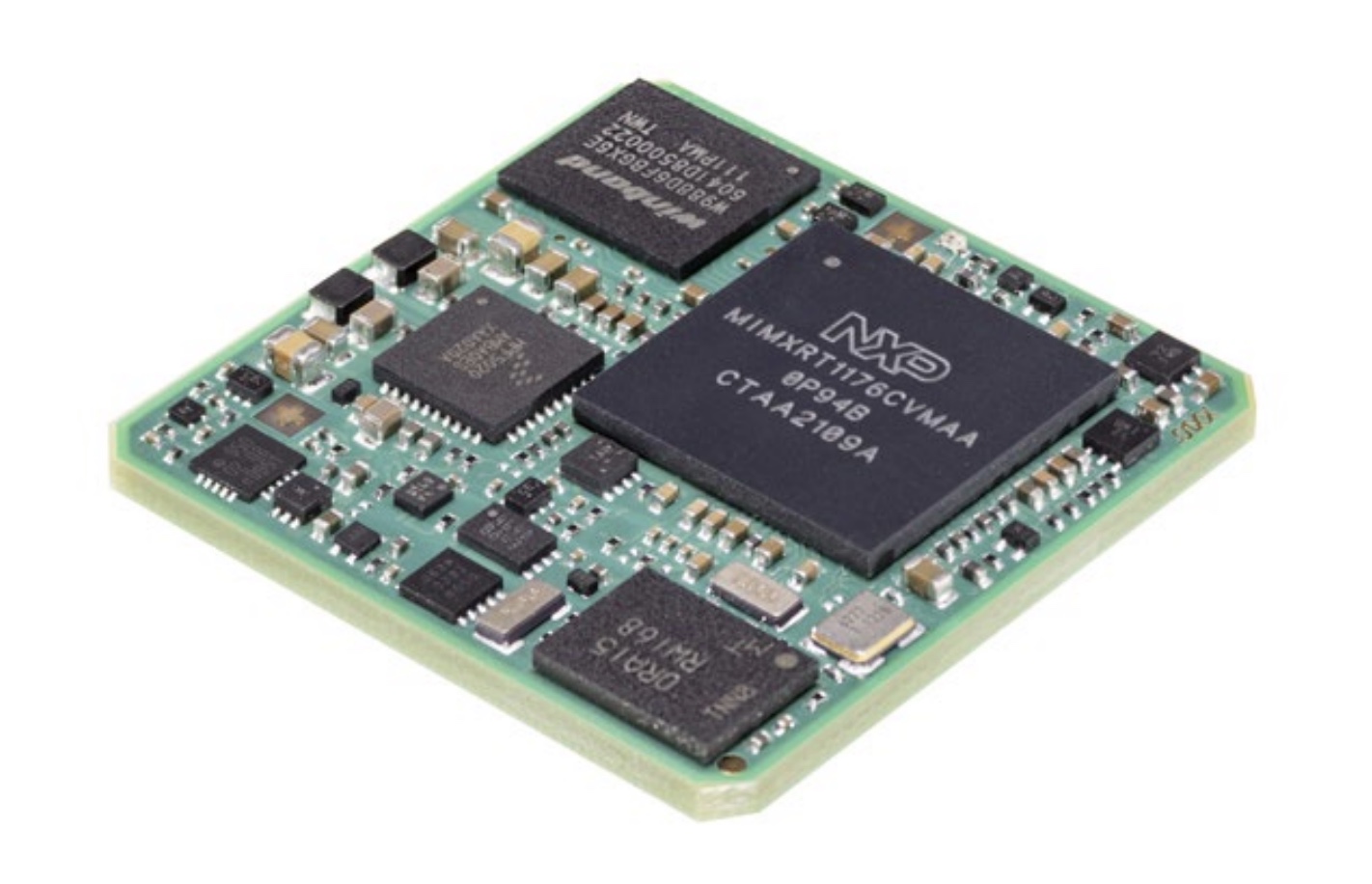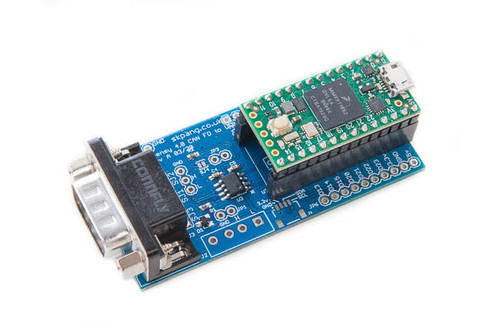Blog
Recent Posts
Miniature Embedded Cortex-M7 Module for IIot Applications Supports up to Three CAN FD Ports
Posted by on
TQ announced their TQMa117xL system-on-chip (SOC) module to develop space-saving and energy-efficient control systems. The board supports up to three CAN FD interfaces.
The module uses the power of the NXP i.MX RT1170 MCU. It comes a compact size of 31 mm x 31 mm (1.2 " x 1.2") and supplies all CPU signals via a total of 277 LGA (Land Grid Array) pads. The module utilizes LP-SDRAM, Quad-SPI-NOR flash, and EEPROM memory. Furthermore, there is an optional security chip and a PMIC (power management IC). Thanks to the processor's versatility and the power dissipation of less than 1 W, the module design offers numerous application prospects for IIoT (Industrial Internet of Things) applications. A variety of interfaces include CAN FD, Ethernet, USB, UART, SD card, GPIOs, audio ports, etc. The module, as well as the corresponding mainboard, is now available in series production.
The recent generation of the NXP i.MX RT processor family, called Crossover MCU, bridges the gap between CPU and MCU. Hence, it blends energy efficiency and performance with fast and high-performance interfaces. In addition, they implement the peripherals of application processors and deliver a high level of integration, including high-speed interfaces, improved security functions, and hardware support for graphical applications. As a result, current MCU users can continue to use their existing tools.
Furthermore, using the MCU technology, the i.MX-RT products may eliminate the need for an on-chip flash, thus reducing costs and enabling the operation at a higher clock frequency to improve processor performance.
The module provides interfaces to measure the room temperature, connect a touch display, and display information. Thus, it fits smart homes and building automation, e.g., climate, lighting, and access control. The module also supports industrial controller applications implemented on a real-time operating system (e.g., Free RTOS) for display systems, motor controllers, actuators, etc.
- Display up to WXGA (1280x800) @60 fps
- Up to 3 CAN FD
- Integrated Cortex®-M7
- High-speed communication via 2x Gbit Ethernet (1x TSN/1xAVB), and 2x USB 2.0 interface
- Low power consumption (typ. 1 W)
- Integrated security functions
Teensy 4.0 CAN FD to USB Converter
This board uses the Teensy 4.0 as a CAN FD to USB converter. The Teensy 4.0 comes with a high-speed 480Mbit/s USB HS interface. The MCP2558FD CAN FD transceiver is rated up to 8Mbps with silent mode under control via software or hardware link.
The MCP2557/8FD is a Microchip Technology Inc. high-speed CAN transceiver/CAN Flexible Data Rate Transceiver with Silent Mode. The devices meet and exceed CAN FD specification requirements in addition to the latest Automotive OEM requirements.
The Teensy 4.0 features an ARM Cortex-M7 processor at 600 MHz, with a NXP iMXRT1062 chip. It can be programmed using the Arduino IDE with Teensyduino add-on.
 Loading... Please wait...
Loading... Please wait...


